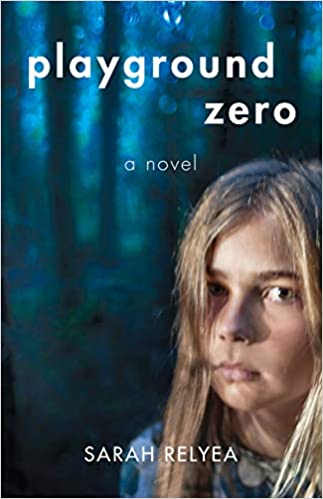Playground Zero
In 1968 the Rayson family leaves Washington, DC for Berkeley. Their new home is not far from protest centers spawned by Dr. King’s assassination and the escalating Vietnam War.
Tom Rayson, a government lawyer, got a job promotion requiring the move. He is a cold father and husband and restless for excitement. His wife, Marian, reads a lot, gets up late most mornings and often takes an afternoon nap. She passively watches over their twelve-year-old son, Curt, and ten-year-old Alice.
Curt, handsome and a natural leader, soon finds his own baseball-playing buddies. Alice is the story’s central and most empathetic character. An observant old soul in a lean and athletic body, she reads beyond her age and wants to explore just about anything new. She needs more than what her parents and brother care to give her. So, she threads her way alone around stoned street kids, school mates who seem perpetually angry and sexually aggressive, and exploitive strangers.
Relyea’s bio notes explain that she “left the Berkeley counterculture at age thirteen” and “processed its effects as a teenager.” Hence, this novel reads like an honest autobiography of a difficult, two-year family saga. Each character is portrayed in depth. Detailed descriptions of weather, clothes, cars, buildings, streets, shops, parks and outlying hills, though at times not necessary, do firmly set every scene. This intense retrospective on people yanked out of the strait-laced Fifties and tossed into a culture of anything goes will appeal to readers wanting to learn more about Berkeley’s days of rage.










